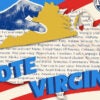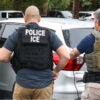Efforts by the Obama Administration to work with Russia on Iran, nuclear arms control, and the fight against terrorism do not prevent Moscow from periodically reasserting its presence in the Western Hemisphere.
Between February 10 and 16, Russian Foreign Minister Sergey V. Lavrov conducted a New World tour seeking deeper ties with the region, underscoring Russia’s readiness to talk trade, sell arms, and compete for influence with the U.S.
The Daily Signal depends on the support of readers like you. Donate now
In Cuba, Lavrov and his Communist hosts fondly celebrated the memory of the Havana-Moscow alliance [“five decades of brotherhood“] stretching from before the Cuban Missile Crisis to end of the Soviet Union. The Russians and Cubans promised joint actions on energy, transportation, engineering, and bio-pharmaceuticals and a revival. Russia views Cuba as a convenient launching pad for further forays into the Americas, particularly for stronger ties with the left-leaning, anti-American Bolivarian Alternative for the Americas (ALBA) forged by Fidel Castro and Hugo Chavez of Venezuela.
Lavrov’s visit to Nicaragua was certainly a thank-you to President Daniel Ortega for his rogue recognition of the faux “independence” of breakaway Abkhazia and South Ossetia. These secessionist territories are integral parts of Georgia, Russia’s democratic neighbor. Lavrov played upon ties dating back to days when Ortega’s Marxist-Leninist Sandinista Party was a major Soviet client.
While normally off the track of Russian diplomacy and for decades a fierce bastion of anti-communism, Guatemala — beset by a host of woes ranging from drought to drug cartels – seeks help from virtually any quarter.
Finally in Mexico, the last stop on Lavrov’s Latin American tour, discussions touched on a wide range of issues from trade and financial links between G-20 members to potential arms sales to Mexico for the anti-drug cartel fight.
The Kremlin senses that the Obama Administration is neglecting its neighbors to the South and nostalgically remembers the Soviet imperialist policies in the Western hemisphere. While Russia is a shadow of its former self militarily, it still is capable of making mischief with the like of Hugo Chavez and his “Bolivarian” allies. Lavrov may have characterized his visits as reflections of pragmatic, commercially- oriented policy, but Russia’s top diplomat made it clear his nation intends to be a strategic player in the Americas.































